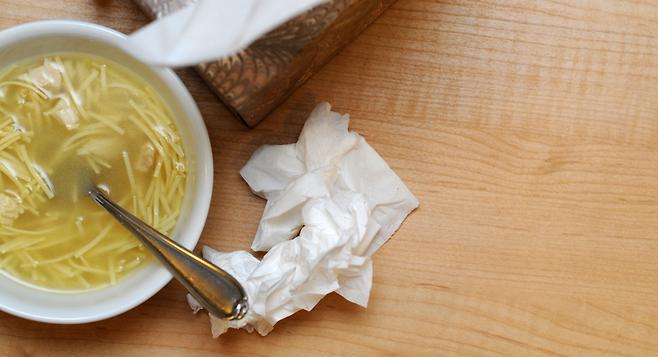
COVID-19 FAQ: Testing, Follow-up, and Quarantine
Feb 22, 2021 | COVID-19 | Share:
Over the past year, we’ve learned how to cope with COVID-19 spreading in our communities. Everyone knows what actions to take to prevent the spread of COVID-19, what symptoms to look for, and how to get a test if they need one. We’ve learned how to safely keep our kids in schools, and we’re even seeing the early stages of vaccine distribution.
But with COVID still circulating, we’re finding that many of our patients still have questions -- especially when COVID hits close to home. We’re answering several of your common questions about getting testing, test follow-up, and quarantine measures.
What’s the difference between the two COVID tests? Is one better than the other?
The two tests that are widely used to test for COVID-19 are PCR tests and antigen tests. Both the PCR test and the antigen test use a nasopharyngeal swab to test for the virus, and both are useful for diagnosing COVID-19. Both tests are very specific, which means that if you test positive with either test, you almost certainly have COVID-19. There are very few false positives with either test.
The PCR test (often known as the “send out” test) is very specific and very sensitive. This sensitivity means that there are very few false positives from a PCR test. This test can identify not only infectious COVID, but can also pick up non-infectious viral fragments. A PCR swab will accurately identify a COVID infection earlier than a rapid antigen test, but it is also more likely to be positive after you are no longer contagious. It usually takes 2 to 3 days to get a result for a PCR test, and this test is also more expensive. The PCR test is most useful when you don’t have symptoms of COVID-19 and want to rule out an infection completely.
The rapid antigen test provides results in about 10-15 minutes. This quick and inexpensive test is just as specific as the PCR test, but it is not as sensitive. If you get tested after exposure but before you have any symptoms, you may get a false negative. If you develop symptoms of COVID-19 after a negative antigen test, you may need to get tested again. These tests are ideal for patients with symptoms of COVID-19 or for people who need clearance to return to work or school after a positive COVID test.
I've tested positive for COVID and I feel terrible. What should I do?
We’re keeping COVID-19 out of our clinics, but that doesn’t mean you can’t get help.
Many mild symptoms of COVID-19 can be treated at home. If you’ve got a fever, headache, sore throat, cough, or congestion, you should treat COVID like you would any other respiratory illness like a severe cold or the flu. Drink plenty of fluids, take ibuprofen, and get lots of rest.
If you develop moderate to severe symptoms of COVID-19 such as shortness of breath or difficulty breathing, you may need further treatment. The first thing you should do is call and get on our telehealth schedule. You can usually talk with a doctor within about an hour, and your doctor can prescribe stronger treatment. This treatment will usually help you feel much better.
Some patients with moderate symptoms of COVID will benefit from monocolonal antibodies. These are only available at the hospital, but we can make an assessment for these over the phone through a virtual doctor visit.

How long am I contagious with COVID after I've tested positive?
In most cases, you are no longer contagious with COVID-19 ten days after the onset of symptoms, or ten days after your positive test. You should be symptom-free for three days prior to day ten to be considered no longer contagious. You may still have some lingering, long-term symptoms; these do not mean you’re still contagious.
If you need to have a negative test in order to return to work or school, you can get a rapid antigen test to prove that you’re no longer contagious.
I tested negative for COVID, but I still feel terrible. What should I do?
First, remember that there are other illnesses circulating in the community besides COVID-19. COVID-19 shares many symptoms with other upper respiratory illnesses such as flu and the common cold. You probably tested negative for COVID because you just don’t have the virus.
If you’re still having symptoms of COVID-19 48 hours after a negative test, you can get tested again. Make sure you tell the doctor that you’ve been tested previously, especially if you were tested at another clinic. You can get another COVID test, but we can also test for other illnesses such as flu, strep, and mono.
If you’re still negative for COVID-19 and other illnesses after a second test, you may need to be seen in the clinic for a physical exam. Your sickness may also just be another virus that we can’t test for but that needs to run its course.
What are some possible long-term effects of COVID?
Although you’re only contagious with COVID-19 for about 10 days after the onset of symptoms, you may continue to have symptoms long after that. These symptoms can last weeks or even months after you recover, and they can occur in patients who had mild illnesses or were not hospitalized.
Most data shows that people can feel short of breath for several weeks after a COVID infection. You may also continue to have an intermittent low-grade fever and chills. Other patients report lingering cough, brain fog, and a loss of taste or smell that may come and go for months. These long-term symptoms may be bothersome, but they do not indicate that you are still contagious.
However, if you have a high fever (greater than 100.4) or a wet, productive cough, you may still be able to spread the virus.
If you’re concerned about lingering, long-term symptoms of COVID-19, let your primary care doctor know.

Someone I live with just had a positive COVID test. What should I do?
COVID-19 is contagious for up to two days before you have any symptoms of the illness. If you live with someone who just tested positive for COVID-19 and they are symptomatic, you have already been exposed to the virus for the past 48 hours. While the CDC does recommend that you quarantine at home if you have had close contact with someone who has had a positive COVID test, it may not be helpful to isolate this individual from others in your home.
It also can be difficult to isolate within your own household, especially if you have small children. However, if the person you live with is a roommate rather than a family member or spouse, home isolation is both reasonable and worth doing.
If you’ve been exposed to COVID-19 through close contact with an individual who has tested positive, you should get tested 72 hours after your exposure, or if you start to have symptoms.
Do I need to wear two masks to stay safe from COVID-19?
While wearing two masks may increase your protection and better enable you to protect others from COVID-19, we believe that one mask that fits well and is worn properly is actually sufficient.
Mask tips
- Wear a cloth mask that is made of multiple layers or a disposable surgical mask.
- Any mask you wear should cover your nose, mouth, and chin.
- Make sure the mask fits close to your face. You can adjust ear loops and pinch the mask around your nose for a closer fit. A better fit will prevent air leaks that can allow respiratory droplets to escape.
- Masking does not eliminate risk. The only way to absolutely ensure that you will never get COVID-19 is to never be around other people. We believe that one mask can provide adequate protection while minimizing risk. No mask (or double mask) can provide perfect protection.
While you don’t need to wear two masks at once, it is helpful to own multiple masks so that you can properly wash a mask after it’s been worn or been soiled.
COVID-19 can be frightening and confusing, and it’s perfectly normal to have questions about the virus. At MedHelp, we’re here for you whenever you have questions about your health. Established patients are always welcome to contact their primary care doctor with any questions they may have about COVID-19 or other health concerns.
Whether you need a test for COVID-19 or have another urgent care need, our clinics are open seven days a week with extended weekday hours.
At MedHelp, it is our intent to prevent timely and relevant information and guidance for our patients. Covid-19 is rapidly evolving, and articles published more than two months ago may not reflect the most up-to-date information about this illness. Please check our most recent articles for more current information.